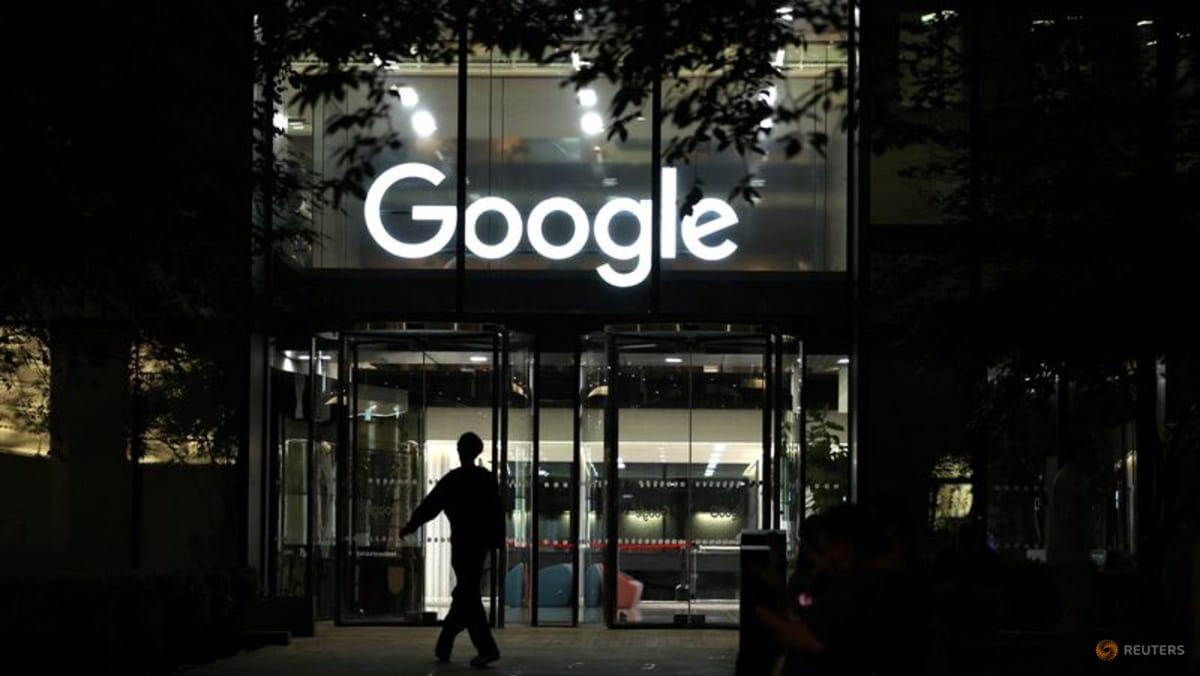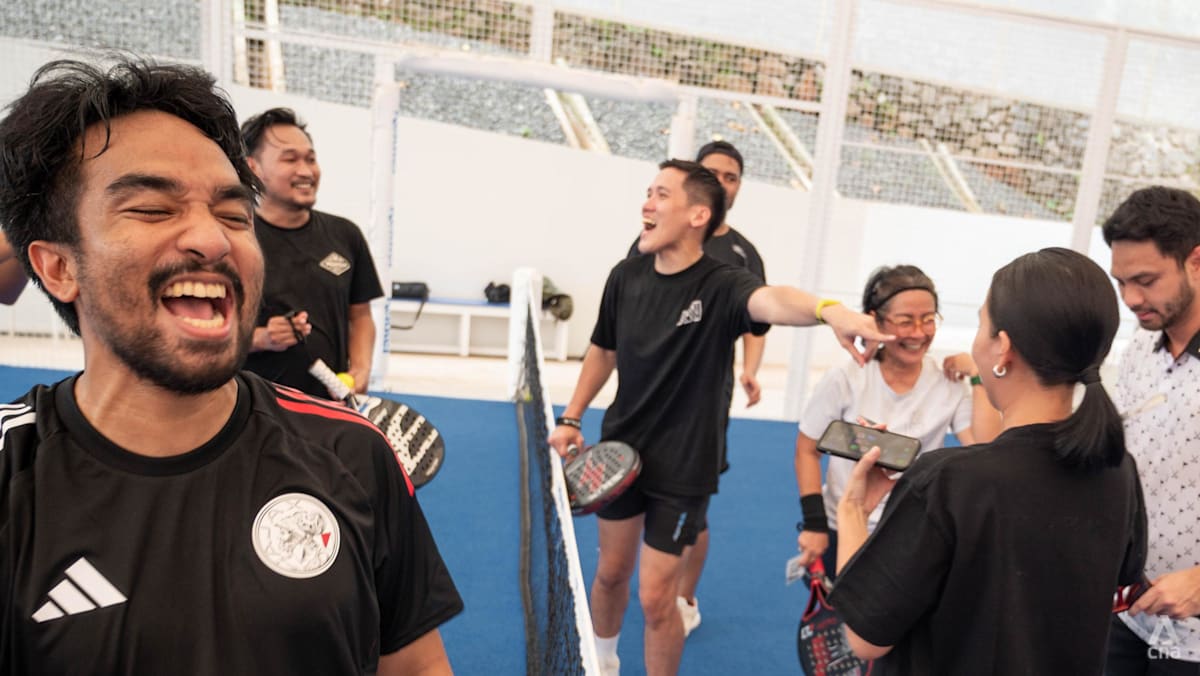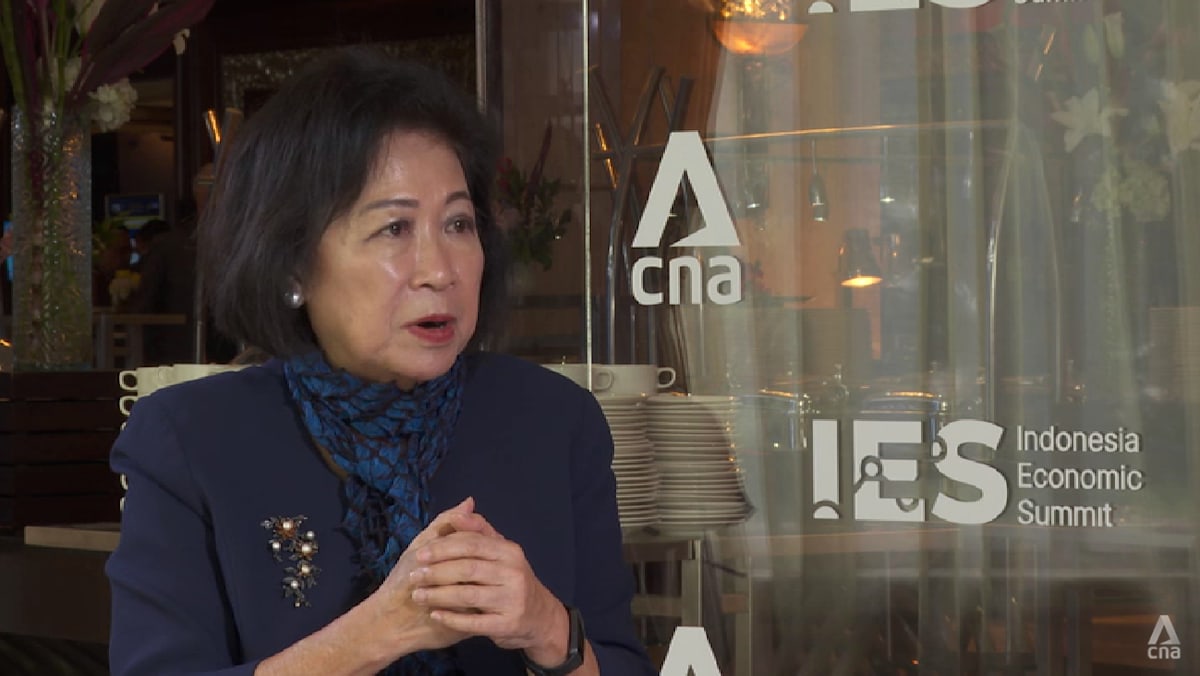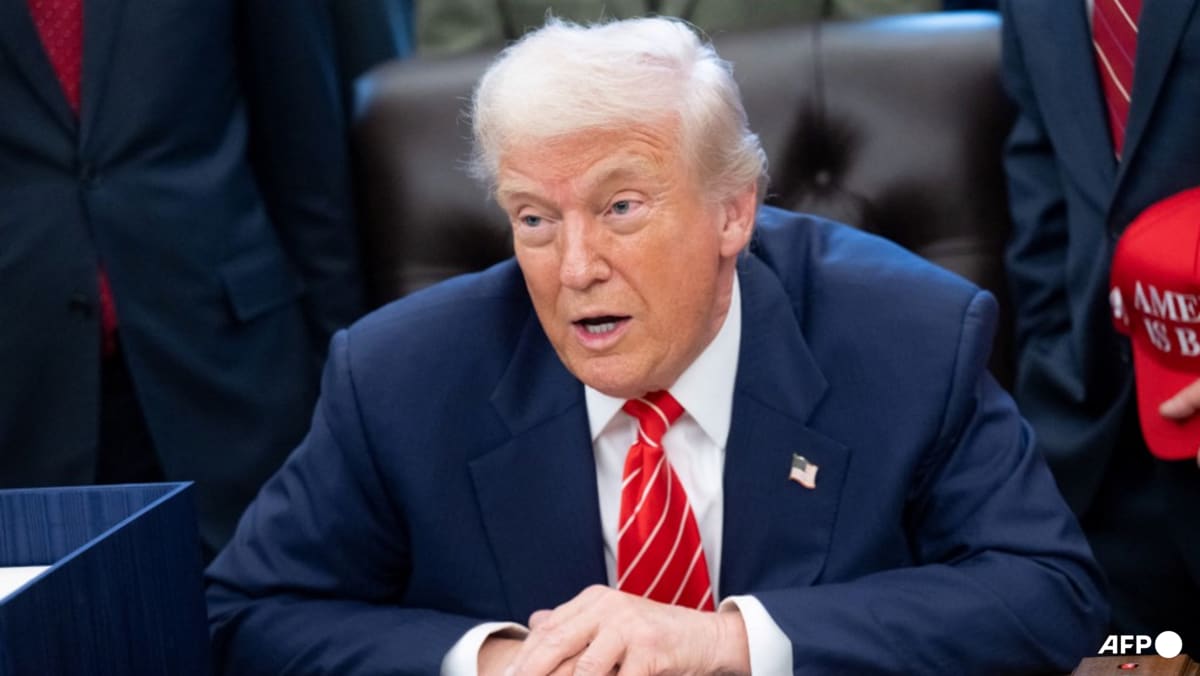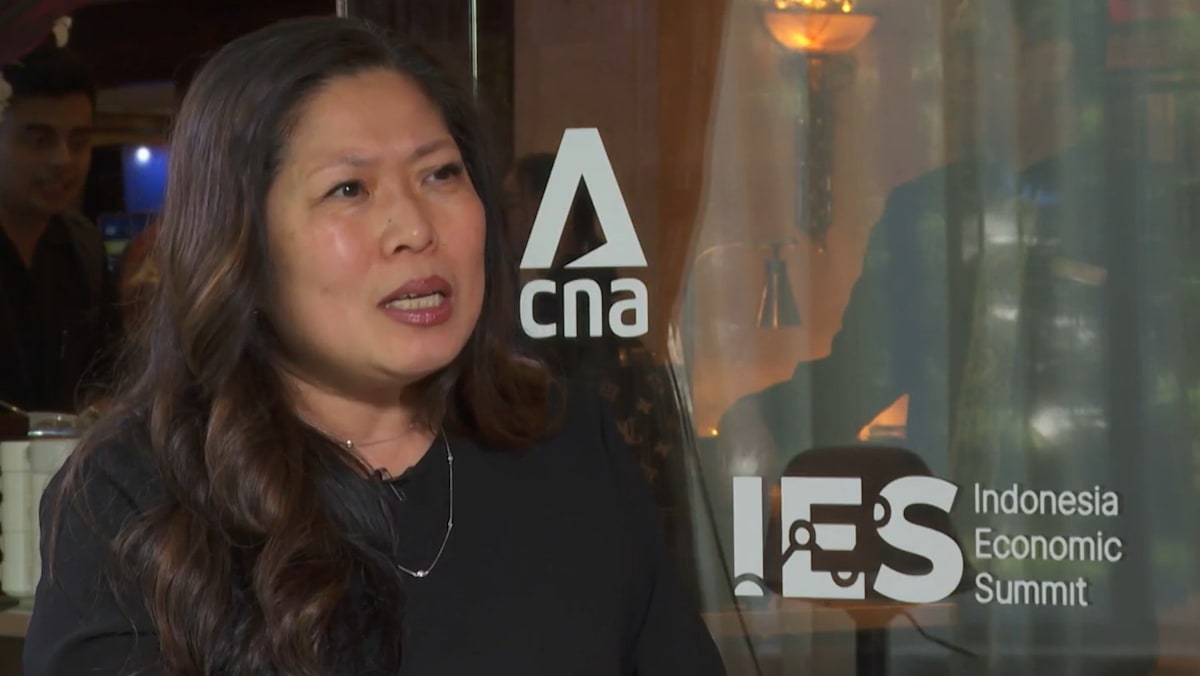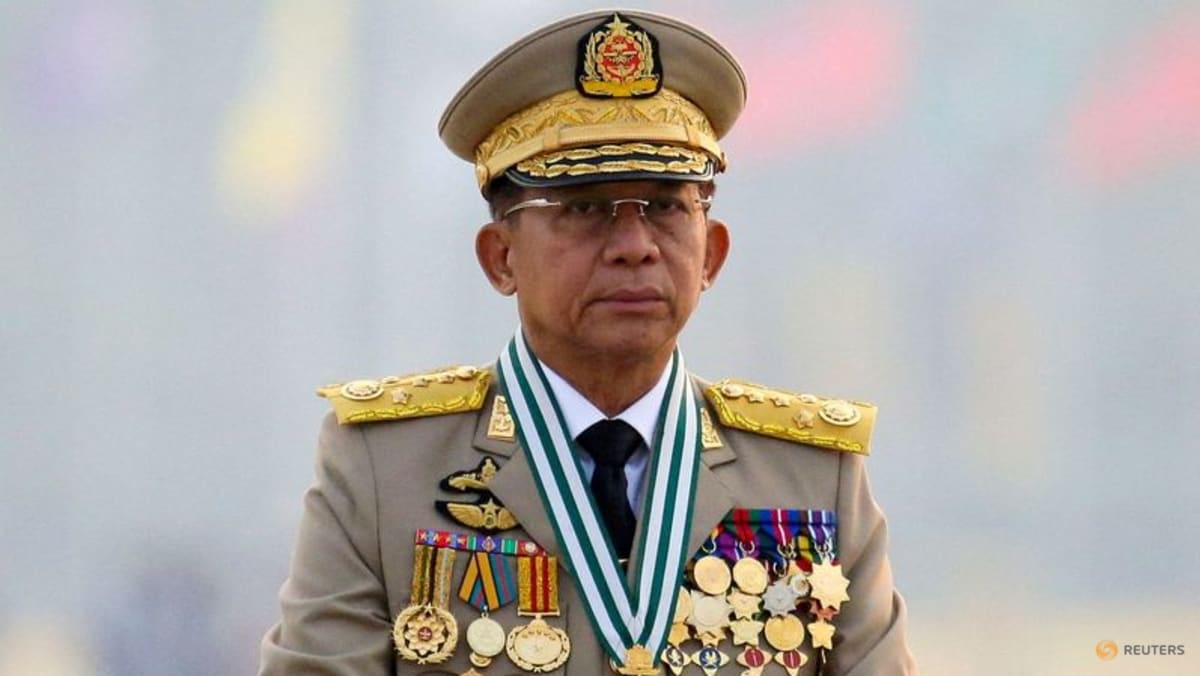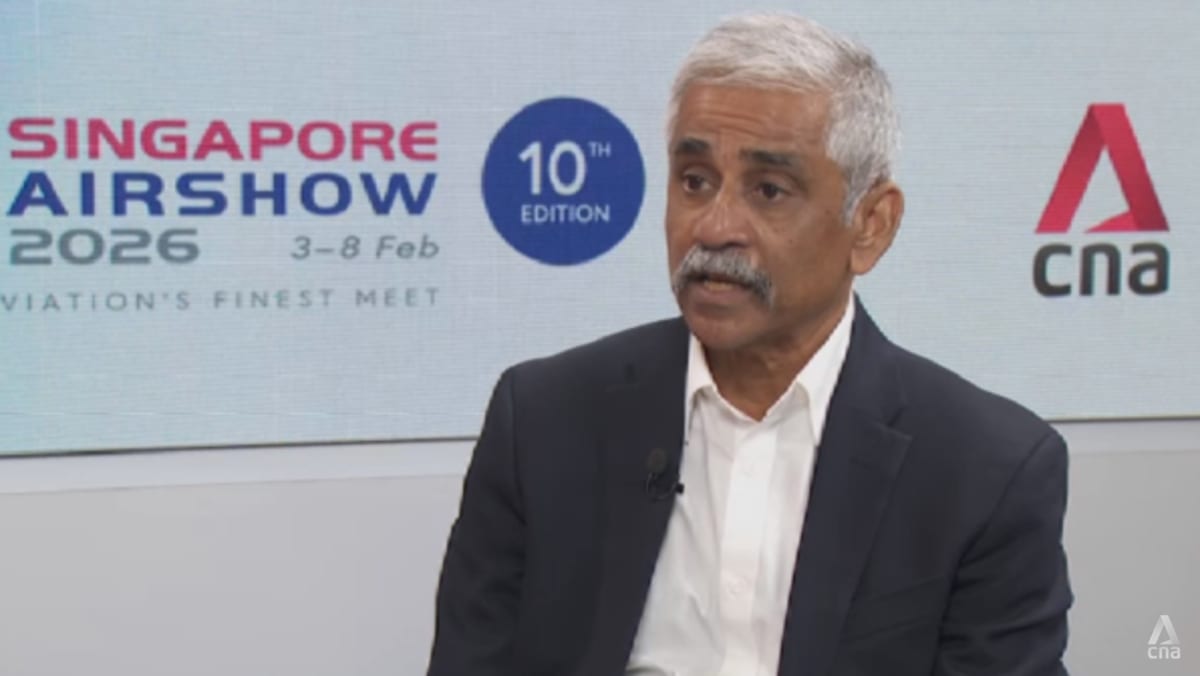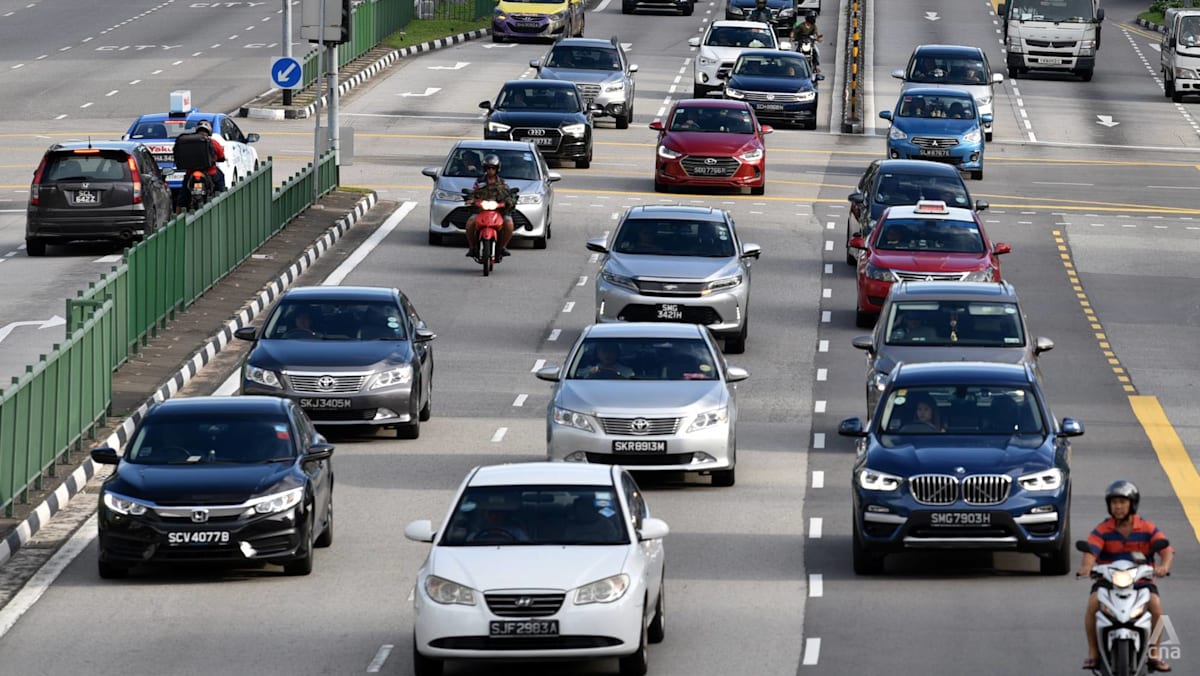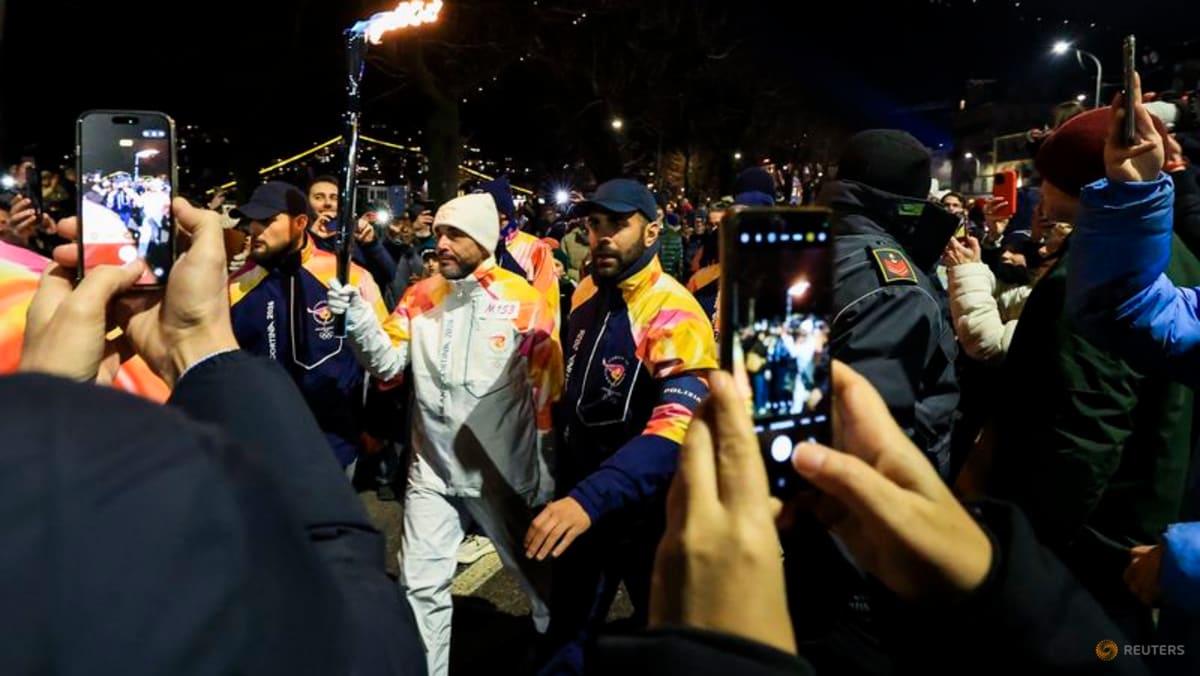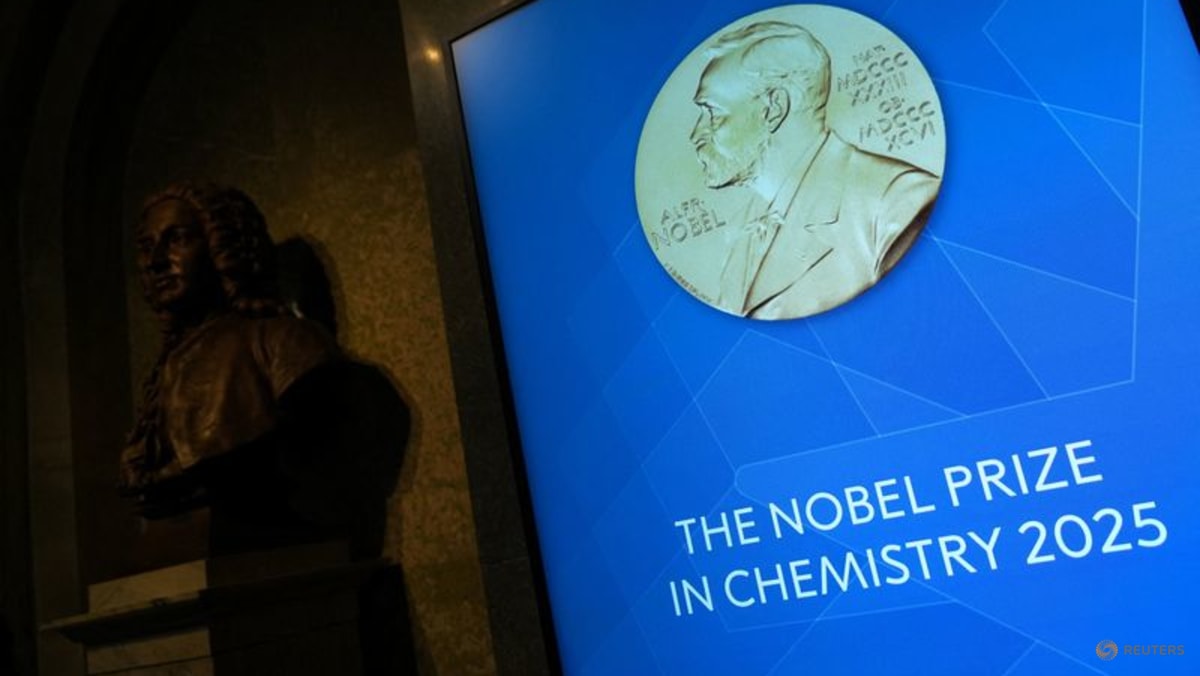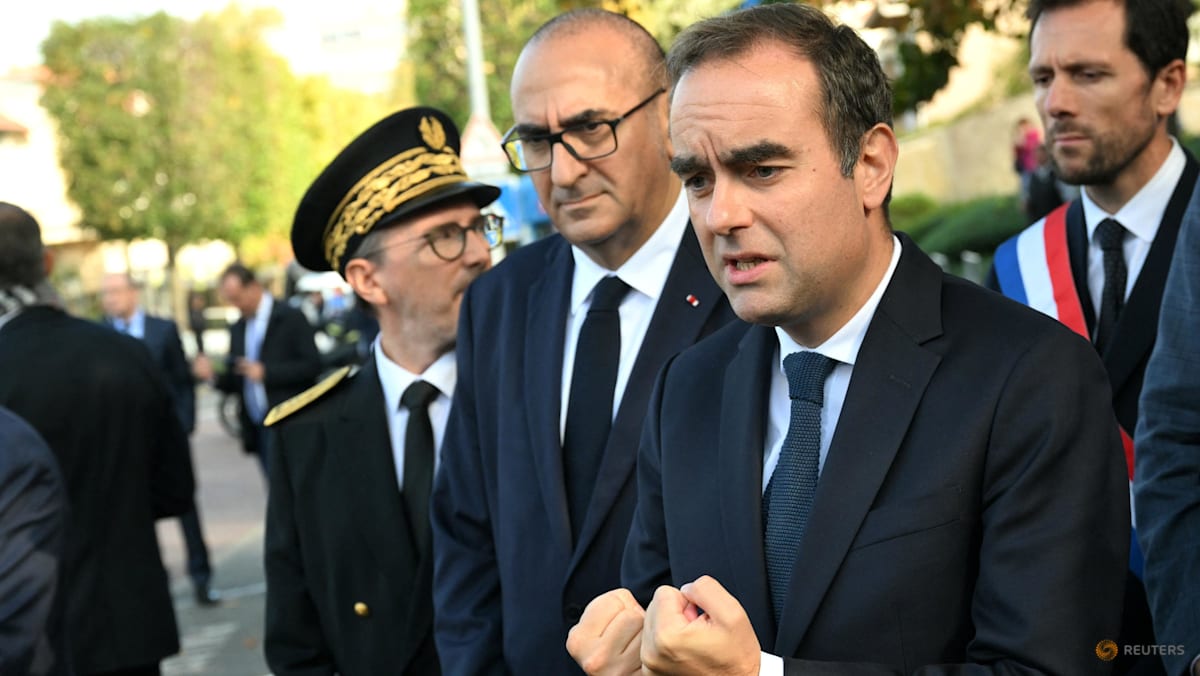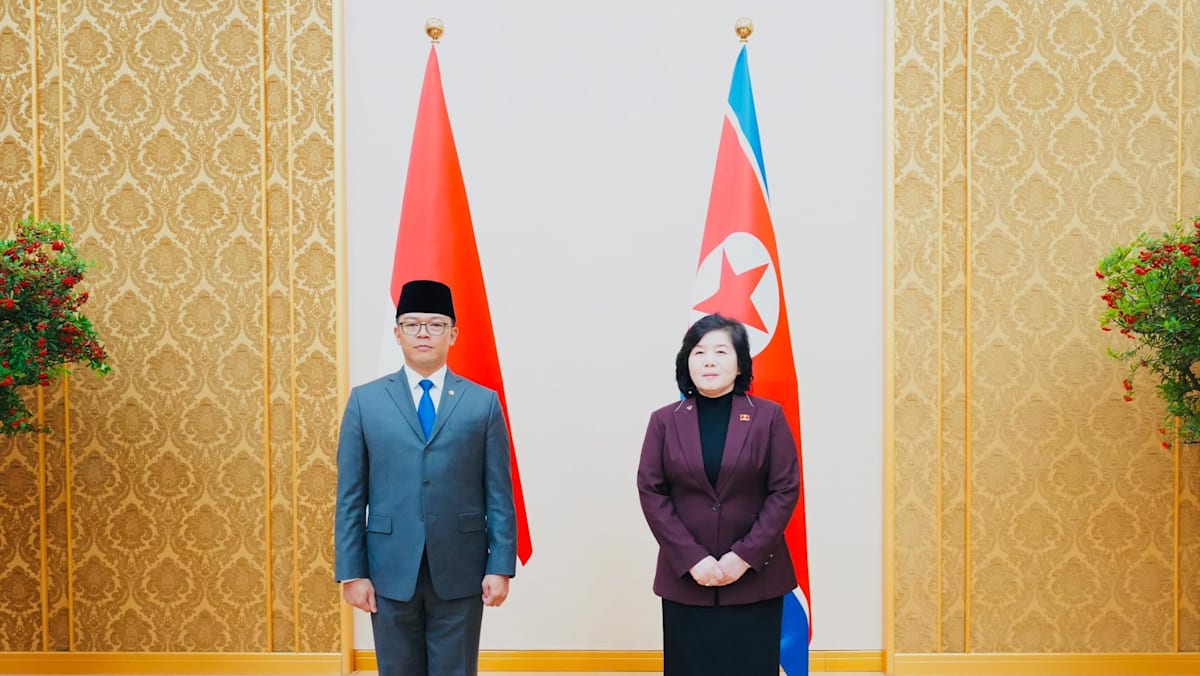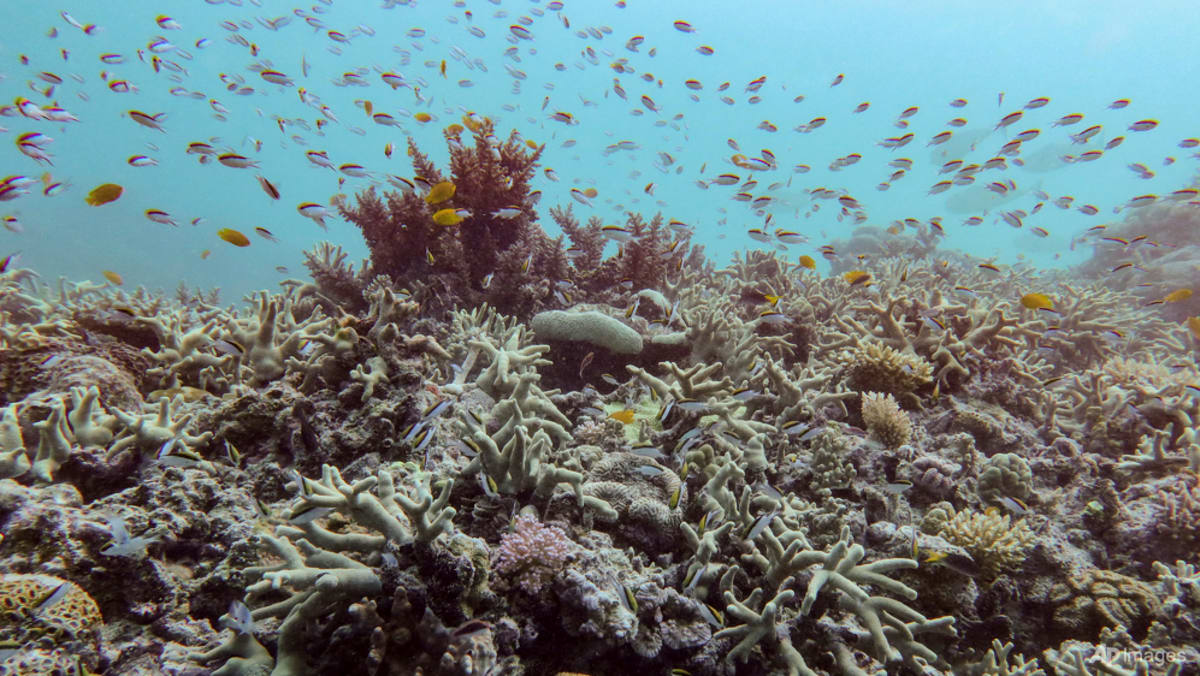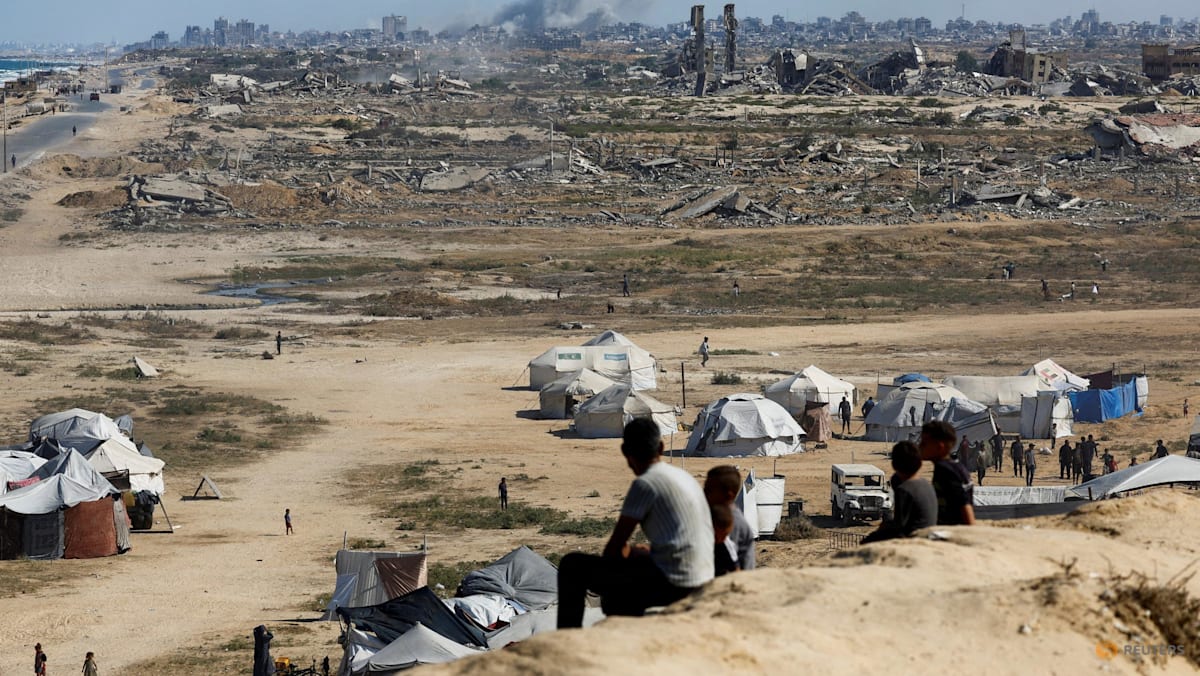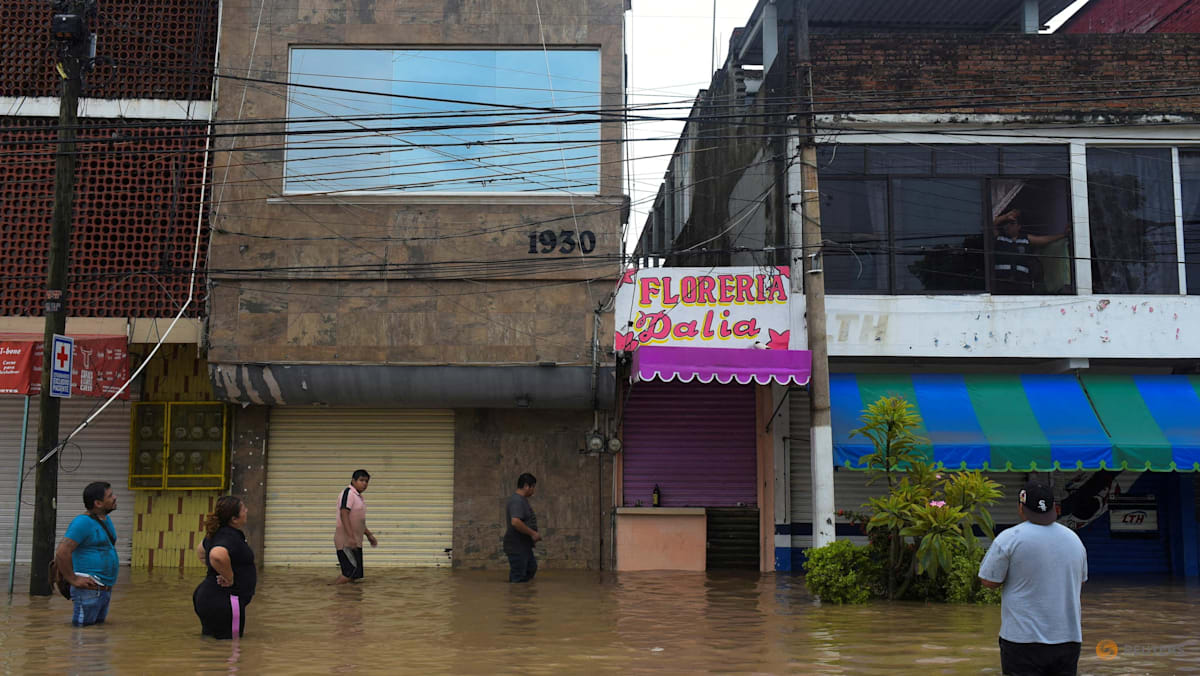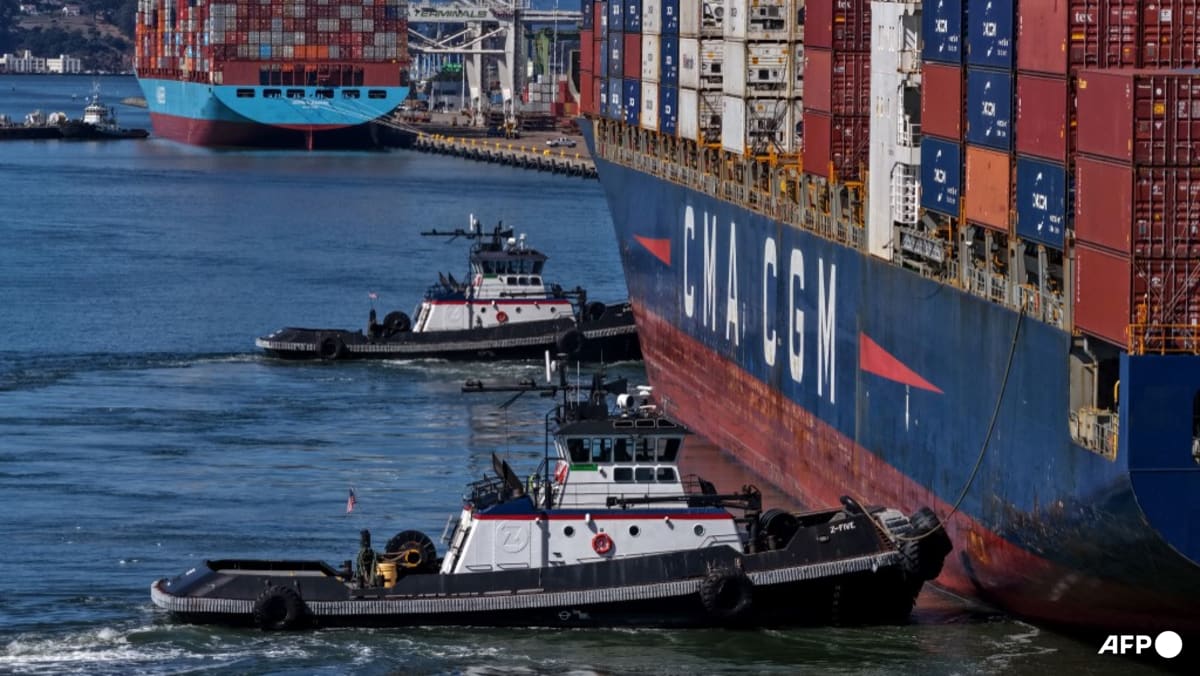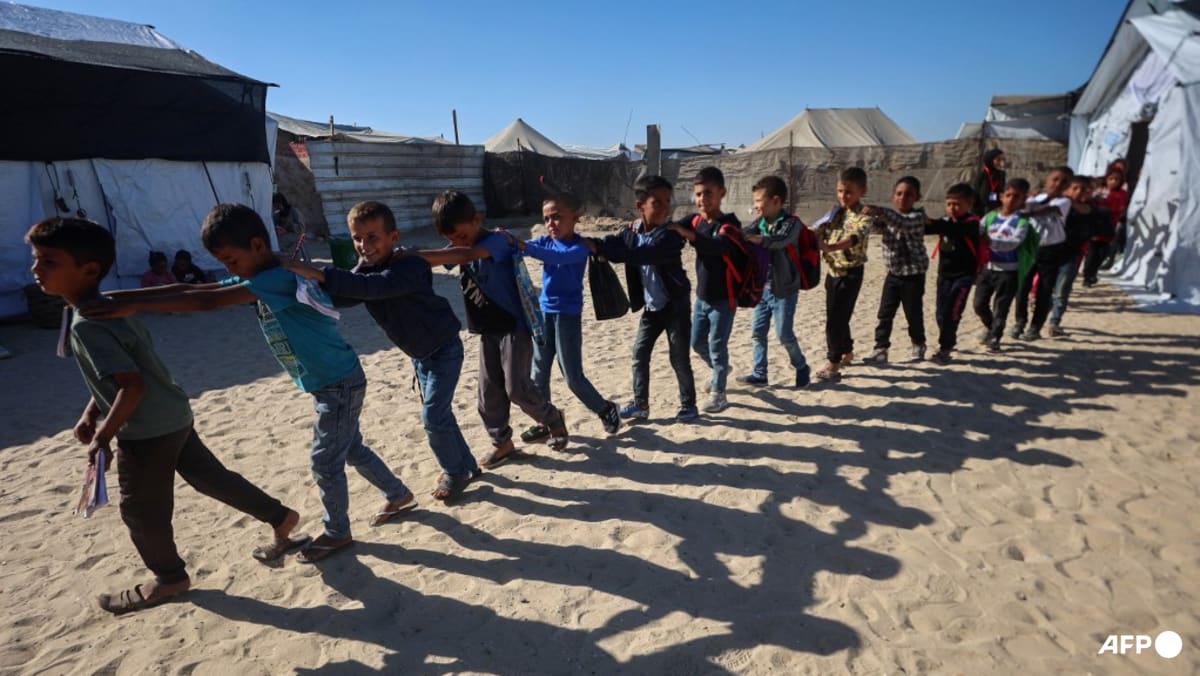SINGAPORE: The opposition Workers’ Party’s (WP) response to statements by Islamic preacher Noor Deros and politicians from Malaysia’s Islamist party during the 2025 General Election was delayed and "ambiguous", said Minister for Home Affairs K Shanmugam on Tuesday (Oct 14).
This could have confused voters, particularly as a keen contest was shaping up in the Tampines Group Representation Constituency between then-Minister-in-charge of Muslim Affairs Masagos Zulkifli and the WP team's leader Faisal Manap, said the minister, who was delivering a ministerial statement in parliament on race and religion.
Mr Shanmugam, who is also Coordinating Minister for National Security, said he hoped that in the future, political parties would immediately reject any such attempts to interfere in Singapore’s political process. “If this is not done immediately, clearly and unequivocally, it will give rise to questions; confusion.”
Mr Noor, a religious leader who is not an accredited ustaz in Singapore and therefore not allowed to preach in the country, first made social media posts in April with a list of demands to Singapore's politicians.
The Singaporean later claimed to have met all of WP’s Malay candidates, and called for voters in the Tampines constituency to vote for WP's Mr Faisal over the ruling People's Action Party's (PAP) Mr Masagos.
During the hustings, Parti Islam Se-Malaysia's (PAS) national treasurer Iskandar Abdul Samad also expressed support for Mr Faisal on social media, while PAS' Selangor youth chief Mohamed Sukri Omar posted comments on how the PAP’s Malay-Muslim Members of Parliament (MPs) cannot be trusted.
As foreigners, the two politicians were deemed to have tried to influence Singapore’s election, and access to their social media posts was blocked in the country.
"RECKLESS" TO ASK SINGAPOREANS TO VOTE ALONG RACIAL, RELIGIOUS LINES
In his posts during the hustings, Mr Noor had said he would rally votes for any political party that agreed with his demands, which were “along racial, religious lines”, said Mr Shanmugam.
Mr Noor also compared two Malay-Muslim candidates and asked Singaporeans to vote for Mr Faisal, portraying the WP candidate as a more vocal champion on race and religion for Malay-Muslims, the minister noted.
“That was the main troubling issue. Not whether some of his demands were absurd, or whether one agrees or disagrees with his demands, or whether one agrees or disagrees with his assessment of candidates,” Mr Shanmugam added.
Asking Singaporeans to vote for political parties and candidates along racial and religious lines is a “reckless thing to do” and sets a dangerous precedent, said the minister.
“If we allow this, other racial and religious groups will have similar demands, and we have to allow them to make similar calls too,” he said.
The “natural result” will be a democracy where the largest and best organised religions and races get their way. Political parties will have to listen to these groups as they have the strongest lobbying power and the most votes, he added.
Followers of different races and religions will clash, and if the government prioritises the views of one faith over another, conflict is inevitable, said Mr Shanmugam.
“If we go down this path of canvassing based on identity politics, the result will be that most parties will appeal to the Chinese vote, and the minorities will feel the squeeze, and will be marginalised,” he added.
By trying to get the Malay-Muslim vote in the way Mr Noor did - and if Malay-Muslims respond - other communities, especially the Chinese one, will notice and “very likely” start to view them “along communal lines”, he added.
“This is what happens in many countries. And our sense is that something like that may have started to happen in Tampines. Many Chinese voters in Tampines seem to have observed the communal nature of the appeals to the Malay voters, and they seem to have chosen to take a different direction, during this GE,” said Mr Shanmugam.
“But this sort of racial dynamics in politics is very bad for Singapore.”
The same thing could happen with religion, he added. Christianity and Buddhism or Taoism would emerge as the dominant religions influencing politics, causing “deep resentment and anxiety” among other groups.
Noting the blurring of lines between religion and politics in the United States, Mr Shanmugam added: “Bigger countries may possibly survive with these sorts of divisions. Singapore, we will certainly be divided, damaged and ruined.”
WP STATEMENT COULD HAVE CONFUSED THE GROUND: SHANMUGAM
Mr Noor also publicised his meeting with WP on Apr 23, amid the election hustings, Mr Shanmugam said in parliament, noting the preacher’s claims that the opposition party was the only one to take him seriously.
In his post, he called on all Muslims in Singapore to vote for WP if they agreed to his demands, and called on Tampines residents to vote for Mr Faisal over Mr Masagos, said Mr Shanmugam.
On Apr 24, Mr Noor continued to speak publicly about his meeting with WP, claiming he had met with all of the party’s Malay candidates and repeating his call for Tampines voters to vote for Mr Faisal, said the home affairs minister.
WP issued a statement on the morning of Apr 26, “more than two days” after the preacher publicised his meeting with them and after a joint statement by the Ministry of Home Affairs and the Elections Department, Mr Shanmugam added.
“This was during the campaign period, when every day made a huge difference,” said Mr Shanmugam.
“This delay, on such an important matter, begs many questions. It can confuse the ground. For example, sections of voters might be misled into thinking, on those two days, that the WP was possibly considering Deros’ demands.”
In statement, WP said it meets with various members of Singapore's religious communities, regardless of race or religion.
"At a meeting with other religious leaders where Mr Noor was present, the party confirms there were no promises, commitments or agreements made to any individual, including Mr Noor, in exchange for political support for WP candidates," WP said at the time.
The party also highlighted speeches made in parliament by party chief Pritam Singh and Mr Faisal about separating religion and politics.
"We remain firmly committed to Singapore’s secular, multi-racial, multi-religious society, and to protecting the integrity of our electoral process," WP had said.
Prime Minister Lawrence Wong then called a press conference on the afternoon of Apr 26, to stress that foreigners urging Singaporeans to vote along religious lines have "crossed the line".
He also urged all political leaders to also firmly reject overseas endorsements. Without naming Mr Noor, Mr Wong raised concerns about other social media posts attempting to bring race and religion into politics.
He then called on all political parties to make their positions clear – not only on foreign interference, but also that identity politics has no place in Singapore and that religion should never be mixed with politics.
Timeline of Noor Deros incident
Apr 19, 2025: In a Facebook post, Mr Noor said he would campaign and vote for any political party that could meet his demands.
Some of these demands included:
- Adopting Islamic economics by changing Singapore's financial system to a non-interest-based model
- Ending policies aimed at preserving existing racial proportions in the population
- Allowing the Muslim community to vote for the Minister-in-charge of Muslim Affairs
- Making the Islamic Religious Council of Singapore (MUIS) an independent body and not a statutory board
- Protecting the institution of family from "LGBTQ advocacy and radical feminist enculturation"
- Abolishing the Internal Security Act
Addressing the Malay-Muslim community, he also said: "As the indigenous people of this land, our special position is enshrined in the Constitution, and our interests deserve to be actively protected and promoted."
On Tuesday, Mr Shanmugam said some of Mr Noor's demands were "absurd" and "very damaging", such as changing the financial system.
"The financial industry contributes 14 per cent of our GDP. It employs nearly 200,000 people. It is vital to our economy. This man, who is based in Malaysia, wants to stop all that. It is madness," said the minister.
Apr 23: In a Facebook post in Malay, Mr Noor said WP was the only party taking his demands seriously.
But he said the WP had not made a "concrete promise" and issued four demands to the party in exchange for his support:
- Raising in parliament the issue of how the practice of Islam is controlled through the Administration of Muslim Law Act and related institutions like MUIS
- Not advocating or defending the normalisation of LGBTQ issues
- "Acknowledging that the United States and Israel are the main masterminds of terrorism" and that the "war on terror" is an excuse to destabilise the Middle East
- Taking a stand on recognising Palestine as a state and severing ties with Israel
In another post, Mr Noor then criticised then Minister-in-charge of Muslim Affairs Masagos Zulkifli for his responses to WP's then MP Faisal Manap in parliamentary exchanges about nurses not being allowed to wear the tudung.
Mr Noor accused Mr Masagos of being condescending, using scare tactics and making religious Muslims seem like "a risk that needs to be managed".
He also called on Tampines residents to "do the right thing". Mr Faisal was confirmed to be running in Tampines Group Representation Constituency earlier that day.
Mr Shanmugam said Mr Noor was portraying Mr Faisal "as a more vocal champion of Malay-Muslim issues" than Mr Masagos.
Apr 24: Mr Noor made more Facebook posts reiterating his call for Tampines voters to vote for Mr Faisal.
In a comment on his earlier post about his demands, he also said he had spoken to all of WP's Malay candidates.
Apr 25: The Elections Department (ELD) and Ministry of Home Affairs (MHA) issued a joint statement highlighting the dangers of mixing religion and politics, and urging all political parties and their candidates to do their part to safeguard Singapore's harmony.
The statement did not name Mr Noor. It focused on three foreigners whom authorities identified as attempting to influence the election by urging Singaporeans to vote along racial and religious lines.
Apr 26: Around midnight, Mr Noor published a Facebook post in Malay clarifying that WP had not agreed to his demands, and that "taking seriously" does not mean "agree and promise to deliver".
In the morning, WP issued a statement saying that it does not have control over foreign parties who express support for its candidates.
WP also confirmed that no promises, commitments or agreements were made to Mr Noor in exchange for political support. The party reaffirmed its commitment to keeping religion and politics separate.
Asked about Nr Noor at a morning walkabout, WP chief Pritam Singh told the media that he stood behind the message in ELD-MHA's statement.
Later, Prime Minister Lawrence Wong held a press conference calling on Singaporeans to reject efforts to bring race and religion into politics.
He also asked political parties to take a clear stand that identity politics has no place in Singapore, and that religion and politics should never be mixed.
At a rally that night, Mr Singh categorically rejected foreign involvement in Singapore's politics.
On Tuesday, Mr Shanmugam noted that WP's statement was made more than two days after Mr Noor had publicised his meeting with the party, and after the ELD-MHA statement.
"This was during the campaign period, when every day made a huge difference. This delay, on such an important matter, begs many questions," said the minister.
"It can confuse the ground. For example, sections of voters might be misled into thinking, on those two days, that the WP was possibly considering Deros' demands."
Apr 27: Asked about Mr Noor at a walkabout, Mr Singh said WP legislators "will exercise our voice in parliament today on behalf of all Singaporeans, in a multi-racial context, in a secular context".
Collapse Expand
On Tuesday, Mr Shanmugam called WP’s statement “ambiguous” and said it did not categorically reject Mr Noor’s call on Muslims in Singapore to vote along racial and religious lines.
The statement also did not reject the preacher’s support for Mr Faisal, WP’s anchor in Tampines GRC at the 2025 elections, said the minister.
“If we accept that identity politics has no place in Singapore, then a clearer and more immediate response was called for,” he added.
Mr Shanmugam then gave an example of a statement that “would have been much clearer”:
“Deros set out various demands, based on his religious beliefs. He said that he would ask Muslims to vote for candidates who accepted his demands. He asks Muslims to vote for the WP candidates if the WP agreed to his demands. He also said that he endorses Mr Faisal Manap in Tampines because Mr Faisal is a more vocal champion of Malay-Muslim issues. The WP rejects his attempts to influence the Malay-Muslim community based on religion and race, just as we reject his endorsement of Mr Faisal Manap based also on religion and race. That is completely unacceptable. We rejected it when he told us and we reject it now.”
This is “what needed to be said”, said the minister, adding that WP should have put out a similar statement immediately after Mr Noor issued his first statement on Apr 23, “without letting the matter drag".
REJECTING FOREGN INTERFERENCE
Mr Shanmugam on Tuesday also criticised WP’s response to foreign attempts to influence the General Election.
WP fielded Mr Faisal in Tampines to contest against PAP’s team led by Mr Masagos, he said, adding that it was “obvious” that they were targeting the Malay-Muslim vote.
On Apr 25, the Ministry of Home Affairs (MHA) and Elections Department Singapore (ELD) said in a statement on Friday (Apr 25) that it had identified a “number of foreigners” attempting to influence the election, days before Singaporeans headed to the polls on May 3.
In the statement, the authorities said it directed Meta to block online election advertising posted on Facebook by two Malaysian politicians from PAS, and a former Internal Security Act detainee who is now an Australian citizen.
The posts, which can no longer be viewed by users in Singapore, expressed support for certain opposition candidates running in GE2025 and criticised decisions made by the ruling government.
Two articles were also published in a PAS newsletter, one of which named several Malay opposition candidates running in GE2025, highlighting their educational and career backgrounds. The other criticised Singapore’s housing policies, linking them to immigration.
“Malaysian politicians from PAS jumped in. They saw an opening and urged Singaporeans to vote along racial and religious lines,” said Mr Shanmugam.
Noting that PAS is an Islamist political party and its goal is to Islamise society in Malaysia, he added: “Does anyone ... seriously believe that PAS is supporting the WP’s Malay-Muslim candidates in Singapore because PAS cares for Singaporeans?
“And does anyone believe that PAS has Singaporeans’ best interests at heart? Does anyone believe that PAS subscribes to Singapore’s multiracial, multireligious model?”
Singapore’s history with Malaysia is seared into some Singaporeans and also some Malaysians “for very different reasons”, said the home affairs minister.
“So we knew the government had to call it out when PAS leaders openly supported a political party in Singapore on racial and religious grounds and in the middle of a General Election, and when the political party in question hadn’t responded.”
Referring again to the WP statement on Apr 26, Mr Shanmugam noted that the opposition party said it does not have control over what foreign parties say.
The timing and substance of WP’s statement were of concern, he added.
Foreign influence is a serious matter, especially in the middle of election campaigning, said the minister.
Given the gravity of the matter, it would have been better if WP had issued its statement immediately “without waiting until after” MHA and ELD issued theirs, he added.
“The WP statement did not clearly reject foreign influence or the foreign endorsement of its candidates. What it said was that the WP had no control over what others said,” said Mr Shanmugam.
Mr Singh made further statements on the matter on the same day. Mr Shanmugam on Tuesday acknowledged that the Leader of the Opposition had “stood behind” the message in the joint statement by MHA and ELD, which made WP’s position clearer.
At a rally speech that night, which took place after Mr Wong’s press conference, Mr Singh “went further” and gave his party’s “clearest statement on the matter”.
During his speech, he stressed that the WP "categorically rejects" the involvement of any foreign element in Singapore's domestic politics. Mr Singh also said at the time that WP does not need the support of any “foreign element”, said Mr Shanmugam in parliament on Tuesday.
“It would have been better if the WP had said this right from the start – responding directly and promptly to what the PAS leaders had said,” he added.
AGAINST IDENTITY POLITICS
In his speech on Tuesday, the home affairs minister also took aim at Singapore Democratic Party (SDP) candidate Damanhuri Abas, who contested Sembawang GRC at GE2025.
He also contested in the 2015 and 2020 elections as part of SDP teams in Marsiling-Yew Tee GRC. According to his LinkedIn profile, he is a regional educational consultant, having previously been a director at Muhammadiyah Islamic College.
At an SDP event, Mr Damanhuri had “made attempts to get support along racial lines”, said Mr Shanmugam on Tuesday.
The opposition party candidate had accused PAP’s Malay MPs of failing to represent the Malay community and ignoring their issues, Mr Shanmugam added. “He claimed that more opposition Malay MPs were needed to raise Malay issues in parliament.”
In an interview posted online, Mr Damanhuri said that Malay community issues “had not been resolved for 60 years under the PAP government”, said Mr Shanmugam.
“He called for the Malay voters to vote against the PAP, framing it as an issue of upholding Malay dignity," he added. "In a separate podcast, he said meritocracy is selectively applied. He rehashed these arguments again in rally speeches, this time in Malay."
Mr Damanhuri’s rhetoric is “deceptive”, said Mr Shanmugam
“What he is effectively doing is trading off the long-term welfare of the Malay community and our country for his immediate political gain,” said Mr Shanmugam.
“This is a slippery and dangerous path that will invite strong reaction from other races in future elections.”
The situation has been “broadly stable” so far because the government has anchored Singapore on the ideal of multiracialism and the governing PAP has “eschewed identity politics”, he said.
Various parties or candidates have tried to stir up the Chinese and Malay communities from time to time, and these efforts have not been successful because of the PAP government’s political dominance, said Mr Shanmugam.
“The PAP has been the dominant political force, so it has been able to bear the political cost of fighting against such sentiments,” he added.
“Making this statement ... (it) would actually have been easier to leave all of this unsaid. But this statement has to be made in the country’s interests.”
This situation is dynamic, said Mr Shanmugam, adding that if future generations of political leaders see identity politics gaining traction, they will also be pressured and tempted to engage in it.
“You know what will happen then. It is a one-way street to ruin.”
People like Mr Damanhuri should be “more honest” with their constituents, the minister added.
Their brand of politics will only work as long as the dominant political force in Singapore rejects identity politics, said Mr Shanmugam.
“But if people like Mr Damanhuri succeed, then the serious risk is that more and more politicians on all sides will go for identity politics,” he added.
“And then Singapore will suffer. We will experience the same conflicts and divisions we see unfolding elsewhere in the world.”

